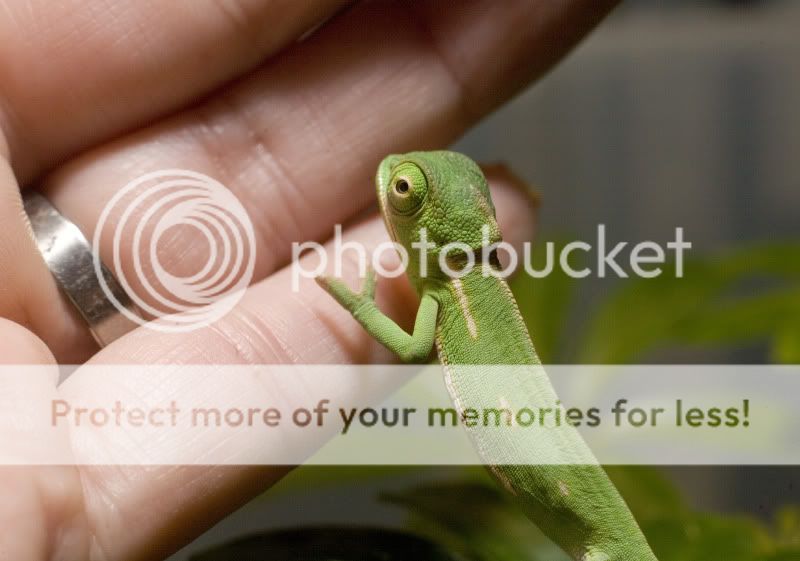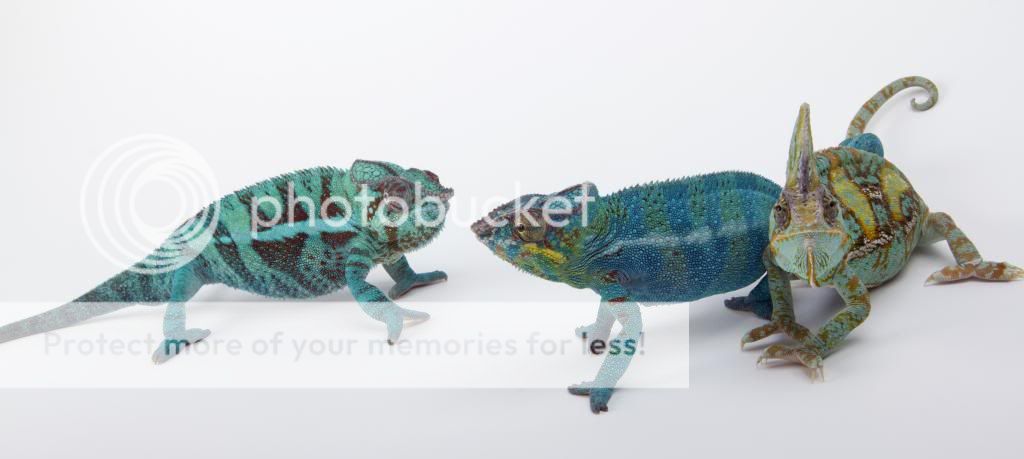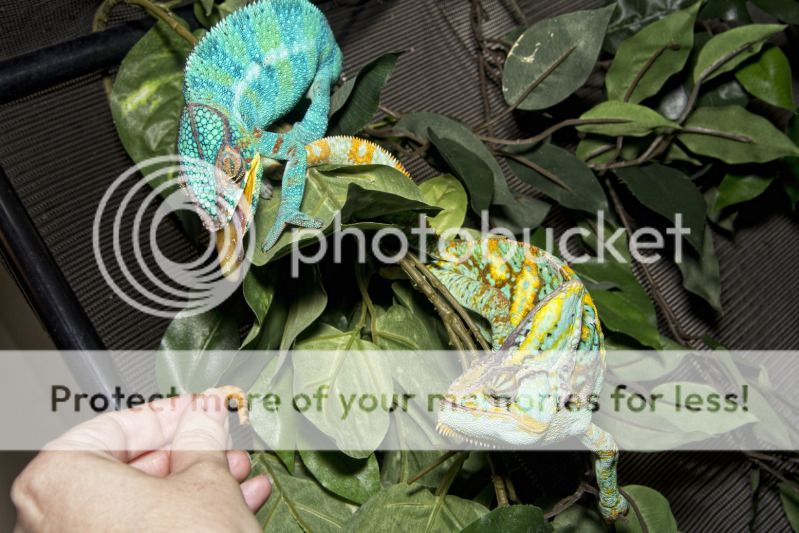Justin18
Member
Are chameleons temperament based off genetics or environment? Or a combination of both?
Since I got my Chameleon from my girlfriends parents I get to see my veiled's parents fairly often and I've noticed the mom is extremely friendly while the dad on the other hand is more of a grumpy old man, which leads me to believe temperament is based on genetics since those two chameleons are unrelated and the environmental part is exactly the same.
However, as a psychology major I've been taught many times that things like temperament are always a little bit of nature and nurture. Although psychology deals with humans and obviously chameleons aren't people.
So what are everybody's thoughts? Nature? Nurture? Or both?
Since I got my Chameleon from my girlfriends parents I get to see my veiled's parents fairly often and I've noticed the mom is extremely friendly while the dad on the other hand is more of a grumpy old man, which leads me to believe temperament is based on genetics since those two chameleons are unrelated and the environmental part is exactly the same.
However, as a psychology major I've been taught many times that things like temperament are always a little bit of nature and nurture. Although psychology deals with humans and obviously chameleons aren't people.
So what are everybody's thoughts? Nature? Nurture? Or both?









